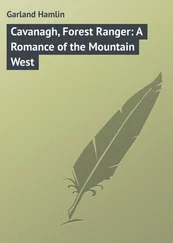Эжен Сю - A Romance of the West Indies
Здесь есть возможность читать онлайн «Эжен Сю - A Romance of the West Indies» — ознакомительный отрывок электронной книги совершенно бесплатно, а после прочтения отрывка купить полную версию. В некоторых случаях можно слушать аудио, скачать через торрент в формате fb2 и присутствует краткое содержание. Жанр: literature_19, foreign_antique, foreign_prose, на английском языке. Описание произведения, (предисловие) а так же отзывы посетителей доступны на портале библиотеки ЛибКат.
- Название:A Romance of the West Indies
- Автор:
- Жанр:
- Год:неизвестен
- ISBN:нет данных
- Рейтинг книги:3 / 5. Голосов: 1
-
Избранное:Добавить в избранное
- Отзывы:
-
Ваша оценка:
- 60
- 1
- 2
- 3
- 4
- 5
A Romance of the West Indies: краткое содержание, описание и аннотация
Предлагаем к чтению аннотацию, описание, краткое содержание или предисловие (зависит от того, что написал сам автор книги «A Romance of the West Indies»). Если вы не нашли необходимую информацию о книге — напишите в комментариях, мы постараемся отыскать её.
A Romance of the West Indies — читать онлайн ознакомительный отрывок
Ниже представлен текст книги, разбитый по страницам. Система сохранения места последней прочитанной страницы, позволяет с удобством читать онлайн бесплатно книгу «A Romance of the West Indies», без необходимости каждый раз заново искать на чём Вы остановились. Поставьте закладку, и сможете в любой момент перейти на страницу, на которой закончили чтение.
Интервал:
Закладка:
As a means to success, he counted upon his good carriage, his spirit, his amiability, and his manner, at the same time gallant and proud – for the chevalier had an excellent opinion of himself – but he counted still more on his wit, his cunning, and his courage. In fine, a man alert and determined, who had nothing to lose and feared nothing, who believed implicitly in himself and his star; who could say to himself as did Croustillac, "In risking death during a moment – for death can be but a moment's agony – I may live in luxury and opulence" – such a man can perform miracles above all when he undertakes a project with such a grand object and as stimulating as that proposed by Croustillac.
According to his resolve, Father Griffen, after he had brought to a close the affairs which detained him at St. Pierre, invited the chevalier to accompany him to Macouba, to remain there until the Unicorn should sail again for France. Macouba being distant not more than four or five leagues from Devil's Cliff, the chevalier, who had spent his three crowns and who found himself without resources, accepted the offer of the worthy priest, without further enlightening him as to his resolve concerning Blue Beard; this he would not reveal until the moment arrived to put it into execution.
After taking leave of Captain Daniel, the chevalier and the priest embarked in a small boat. Favored by a good wind from the south, they set sail for Macouba. Croustillac appeared indifferent to the magnificent and novel scenes which were afforded by the coast of Martinique, seen from the water; the tropical vegetation whose verdure, of a tone almost metallic, outlined on a glowing sky, affected him very little.
The adventurer, with his eyes fixed on the scintillating wake which the boat left behind her, seemed to see flashing the living rays of Blue Beard's diamonds; the little green herbs, standing in relief from the submerged meadows which edged the winding shores, pictured to the Gascon the emeralds of the widow; while some drops of water sparkled in the sun in the fall of the oars made him dream of the sacks of pearls which the terrible resident at Devil's Cliff possessed.
Father Griffen was also deeply absorbed; after thinking of his friends at Devil's Cliff, he turned his thoughts, with a mixture of disquietude and joy, to his little flock at home, his garden, his poor and unpretentious church, his house, his favorite horse, his dog, and his two slaves who had always given him the most devoted service. And then – shall we say it? – he thought of certain preserves which he had made some days before his departure, and as to the condition of which he was ignorant.
In three hours our travelers arrived at Macouba. Father Griffen had not long to wait; the canoe was moored in a little bay, not far from the river which watered this section, one of the most fertile of Martinique.
Father Griffen leaned upon the chevalier's arm. After having for a time followed the shore where the high and powerful waves of the Caribbean Sea rolled on, they reached the village of Macouba, composed of some hundred houses built of wood and covered with roses and palms.
The village was built on a semicircular plan which followed the outline of the Bay of Macouba, a little port where many canoes and fishing boats were built. The church was a long wooden edifice from the center of which four beams arose, surmounted by a little belfry in which was hung a bell; the church overlooked the village, and was in turn overshadowed by immense cliffs, covered by rich vegetation, which made an amphitheatre of living green.
The sun was rapidly setting. The priest trod the only street that crossed Macouba, and which led to the church. Some small negroes, absolutely nude, were rolling in the dust; uttering loud cries; they fled at the approach of the priest. A number of creole women, white or of mixed blood, dressed in long robes of Indian and madras cloth, in striking colors, ran to the doors; recognizing Father Griffen, they testified to their surprise and joy; young and old hastened to respectfully kiss his hand, and to say in creole, "Blessed is your return, good Father; you have been missed in Macouba." Numbers of men came out at once and surrounded Father Griffen, with the same tokens of attachment and respect.
While the priest talked with the villagers of the events which had taken place at Macouba during his absence, and in turn gave them news of France, the housewives, fearing that the good father would not find sufficient provision at the parsonage, had retired to select, one a fine fish, another a beautiful pullet; this one the quarter of a fine fat buck, that one some fruits or vegetables, and a number of little negroes were ordered to carry to the parsonage these voluntary tithes.
The priest reached his house, situated on one side, at some distance from the village, overlooking the sea. Nothing could be more simple than this modest wooden house, covered with roses, and of one story. Curtains of clear linen dressed the windows and took the place of blinds, which were a great luxury in the colonies.
A large room, comprising at the same time parlor and dining room, communicated with the kitchen built at the rear; at the left of this principal room were the bedroom of Father Griffen, and two other small rooms opening into the garden and set apart for strangers or the other priests of Martinique who might, at times, ask the hospitality of their brother priest.
A henhouse, a stable for the horse, lodgings for two negroes, and several sheds, completed this establishment, furnished with a rustic simplicity. The garden had been carefully laid out. Four broad paths were divided by many beds bordered by thyme, lavender, wild thyme, hyssop and other fragrant plants. The four principal beds were subdivided into numerous little ones set apart for vegetables or fruits, but surrounded by wide borders of fragrant flowers. Between two little walls of verdure, covered with Arabian jasmine and odorous creepers, could be seen, in the horizon, the sea and the hills of the other islands.
No fresher or more charming spot than this garden, in which the most beautiful flowers mingled with fruits and magnificent vegetables, could be found. Here a bed of melons, of an amber color, was bordered by dwarf pomegranates, shaped like a small box and covered at the same time with purple blossoms and fruit so heavy and so abundant that it touched the earth. A little further on, a branch of Angola wood with its long, green husks, and its blue flowers, was surrounded by a line of white and pink almonds, sweet with perfume; the carrot plant, sorrel, gimgambo and leek, were hidden in a fourfold rank of tuberoses of the richest tints; finally, came a square of pineapples which perfumed the air, having a row of magnificent cacti for a border, with yellow calix and long silver pistils. Behind the house extended an orchard composed of cocoanuts, bananas, guava, tamarind, and orange trees, whose branches were weighted down to the earth with flowers and fruit.
Father Griffen followed the paths of his garden with unspeakable happiness, observing each flower, plant and tree. His two slaves attended him; one was called Monsieur, the other Jean. These two good creatures, weeping with joy at the sight of their master, could not reply to his questions, so much affected were they, and could only say one to the other, with hands raised to heaven, "God be praised – he is here! he is here!"
The chevalier, indifferent to the joy of the natives, followed the priest mechanically; he was consumed with the desire to inquire of his host if, through the woods which rose in an amphitheatre, one could see the road to Devil's Cliff.
After examining his garden, the good priest went out to inspect his horse which he had named Grenadille, and his large English mastiff called Snog; as soon as he opened the stable door Snog threw himself upon his master and bounded around him. He not only jumped upon him but barked with joy, with such evidence of affection that the negro, Monsieur, was obliged to take the dog by his collar and could with difficulty restrain him, while the priest caressed Grenadille, whose glossy coat and well-covered ribs bore testimony to the good care of Monsieur, who had charge of the stable.
Читать дальшеИнтервал:
Закладка:
Похожие книги на «A Romance of the West Indies»
Представляем Вашему вниманию похожие книги на «A Romance of the West Indies» списком для выбора. Мы отобрали схожую по названию и смыслу литературу в надежде предоставить читателям больше вариантов отыскать новые, интересные, ещё непрочитанные произведения.
Обсуждение, отзывы о книге «A Romance of the West Indies» и просто собственные мнения читателей. Оставьте ваши комментарии, напишите, что Вы думаете о произведении, его смысле или главных героях. Укажите что конкретно понравилось, а что нет, и почему Вы так считаете.












